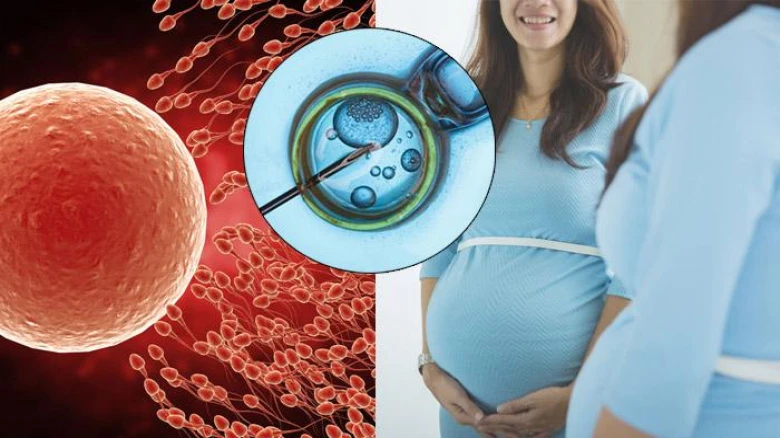Regional

Preeclampsia is a pregnancy-related complication characterized by new-onset high blood pressure and possible organ damage, posing a major risk to both...
Digital Desk: People who became pregnant using assisted reproductive technologies such as in vitro fertilization (IVF), intrauterine insemination, and other methods were found to be over twice as likely to develop preeclampsia—a serious pregnancy complication characterized by high blood pressure—than those who had traditional pregnancies, claimed a study.
Preeclampsia is a pregnancy-related complication characterized by new-onset high blood pressure and possible organ damage, posing a major risk to both the pregnant woman and the baby.
Although the study did not look into the processes underlying the association, researchers speculated that the placenta may develop differently in some assisted reproductive technology pregnancies than in traditional pregnancies, raising the risk of preeclampsia.
"Having twice the risk of preeclampsia compared to traditional pregnancy should not discourage people from choosing assisted reproductive technologies. However, if cardiovascular issues arise, it is critical to follow up with a cardio-obstetrician or maternal foetal medicine specialist for appropriate care and timely management " said lead author Ahmad Mustafa, a cardiology fellow at Staten Island University Hospital in New York.
"Dedicated cardiovascular care must be incorporated into the usual follow-up of patients created by assisted reproductive technology," Mustafa added.
For the study, the researchers analyzed the rates of cardiovascular problems in 5,874 technology-assisted pregnancies and more than 2.2 million traditional pregnancies.
They first looked at the rates of several cardiovascular disorders, such as irregular heartbeats, heart attacks, heart failure, pulmonary edoema, blood vessel-related complications, preeclampsia, and gestational diabetes.
Preeclampsia causes a variety of symptoms and complications, and it can progress to eclampsia, a potentially fatal illness characterized by seizures and/or coma in the pregnant woman, for which the only curative treatment is delivering the baby.
Having preeclampsia has long-term consequences, such as an increased chance of preeclampsia in future pregnancies, as well as an increased risk of kidney disease and cardiovascular problems such as coronary artery disease, stroke, and heart failure later in life.
The researcher aims to further analyze the data to understand whether certain reproductive technologies are associated with a higher or lower risk of preeclampsia than other technologies.
They also recommended more rigorous surveillance of pregnancies involving assisted reproductive technologies in order to discover and treat issues as early as possible.
The study was presented at the American College of Cardiology's Annual Scientific Session, which was held in conjunction with the World Congress of Cardiology.
Leave A Comment